Africa
Somalia-Ethiopia tensions escalate as port deal talks stall
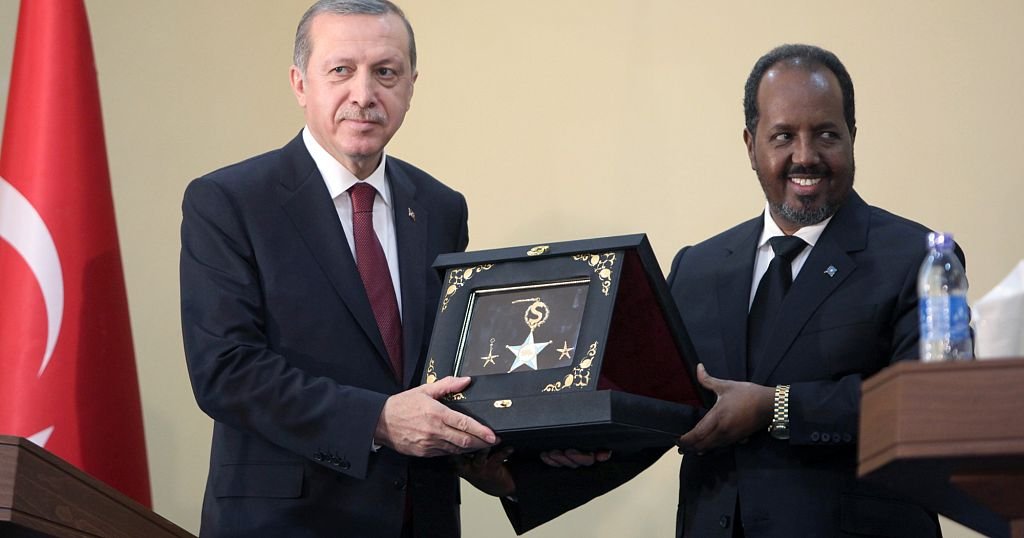
Turkish President Recep Tayyip Erdoğan hosted Somali President Hassan Sheikh Mohamud in Ankara on Friday for a high-level meeting focused on strengthening bilateral relations, particularly in the areas of counterterrorism and regional cooperation.
The talks were held behind closed doors at the Presidential Complex, according to a statement released by Türkiye’s Communications Directorate.
The meeting comes as tensions between Somalia and Ethiopia escalate as mediation efforts over a controversial port access agreement stall. The talks, brokered by Turkey since February 2024, aim to resolve a dispute triggered by a deal signed on January 2024 between Ethiopia and the self-declared Republic of Somaliland.
Under the agreement, Ethiopia would gain access to a 20-kilometre stretch of Somaliland’s coastline. In exchange, Somaliland would receive support for its long-sought international recognition. Somalia, which considers Somaliland part of its territory, strongly opposes the deal, calling it a violation of its sovereignty.
Mogadishu has launched a diplomatic campaign to block the agreement and has appealed to the United Nations for intervention.
On July 3, Ethiopian Prime Minister Abiy Ahmed reiterated his government’s position, describing sea access as essential for Ethiopia’s economic development. His comments echoed earlier statements from January that were strongly condemned by Somali officials.
Somalia again denounced the deal, referring to it as a “land grab,” and urged the international community to take action.
The standoff has attracted the attention of regional powers. Earlier this week, Egyptian President Abdel Fattah el-Sisi met with Somali President Hassan Sheikh Mohamud. During the meeting, Egypt pledged to strengthen military cooperation and support Red Sea maritime security.
No breakthrough has been reached in the Turkey-led negotiations, and no further rounds of talks have been scheduled.
Africa
Uganda reopens border with M23-held eastern DRC
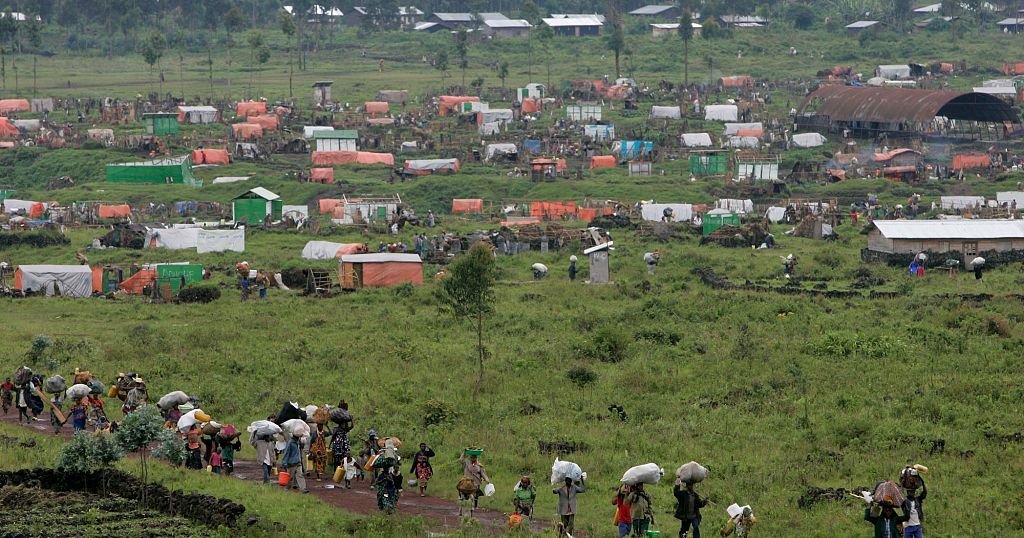
Six months after closing key border crossings due to rebel advances, Uganda has reopened its border with the Democratic Republic of Congo (DRC). The move comes after the seizure of Goma by the M23 rebel group, which led to the shutdown of crossings at Bunagana and Ishasha in Congo’s North Kivu province.
Ugandan military assistant Chris Magezi confirmed the reopening on social media, stating that it was ordered directly by President Yoweri Museveni. Magezi also noted that those responsible for initially closing the crossings and disrupting trade between the two communities will be investigated.
The decision follows the recent signing of a peace agreement in Washington, where Rwanda and the DRC agreed to support future talks between the M23 rebels and the Congolese army.
The M23 rebel group, largely made up of ethnic Tutsis, resumed its offensive in late 2021. Fighting intensified significantly this year, with the group capturing large areas of eastern Congo, including the strategic city of Goma.
The Congolese government has repeatedly accused Rwanda of supporting M23 with weapons and troops. These claims have been backed by the United States, which has cited credible intelligence reports. Rwanda has denied any direct involvement with the rebel group.
With the border reopened and international diplomacy underway, regional dynamics are shifting. The success of upcoming peace talks will depend heavily on continued pressure from international stakeholders and a willingness among parties to compromise.
Africa
Boeing reaches settlement with man who lost entire family in 737 MAX Crash
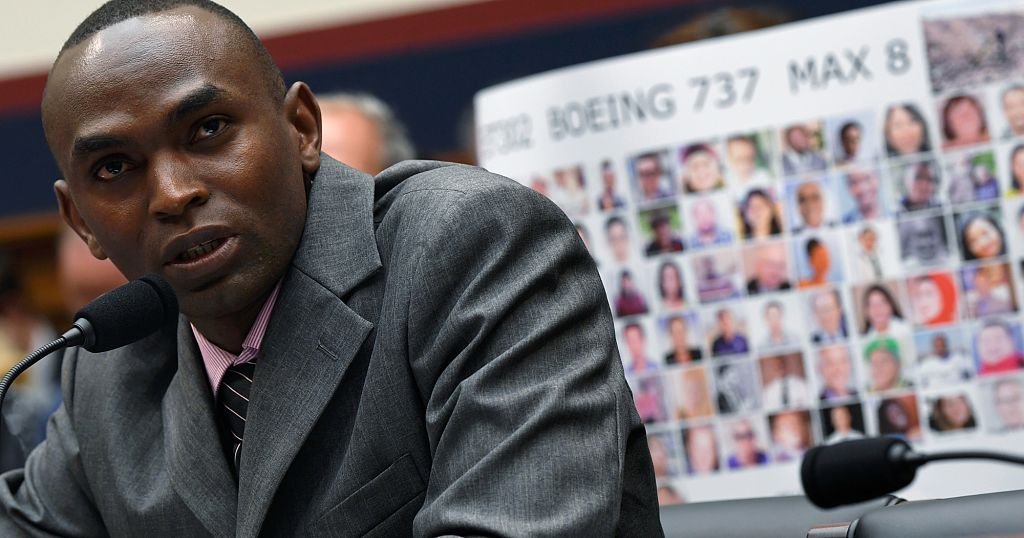
Just days before a high-profile trial was set to begin, a last-minute settlement has been reached between Boeing and Paul Njoroge, the Canadian man who lost his entire family in the deadly 2019 crash of Ethiopian Airlines Flight 302.
Njoroge had filed a lawsuit seeking millions in damages, citing the profound emotional trauma he has endured since the tragedy. In March 2019, his family were flying to their native Kenya when the Boeing 737 MAX suffered a fatal malfunction shortly after takeoff from Addis Ababa. The plane crashed minutes later, killing all 157 people on board.
Among those killed were Njoroge’s wife, Carolyne, and three small children, Ryan, age 6, Kellie, 4, and Rubi, 9 months old, the youngest to die on the plane. Njoroge also lost his mother-in-law, whose family has a separate case.
Njoroge, who met his wife in college in Nairobi, was living in Canada at the time of the crash. He had planned to join his family in Kenya later. He testified before Congress in 2019 about repeatedly imagining how his family suffered during the flight, which lasted only six minutes.
He has pictured his wife struggling to hold their infant in her lap with two other children seated nearby. “I stay up nights thinking of the horror that they must have endured,” Njoroge said. “The six minutes will forever be embedded in my mind. I was not there to help them. I couldn’t save them.”
Njoroge says he has been unable to return to his family home in Toronto due to the overwhelming grief. He has struggled to find employment and has faced criticism from extended family members for not accompanying his wife and children on the trip.
The terms of the settlement remain confidential. However, the case had been expected to draw renewed attention to Boeing’s safety practices and the troubled 737 MAX aircraft. The Ethiopian Airlines crash, along with a similar incident involving a Lion Air flight in Indonesia just five months earlier, claimed a combined 346 lives and led to a global grounding of the MAX fleet.
Africa
Engine fuel cut off before Air India crash that killed 260, preliminary report finds
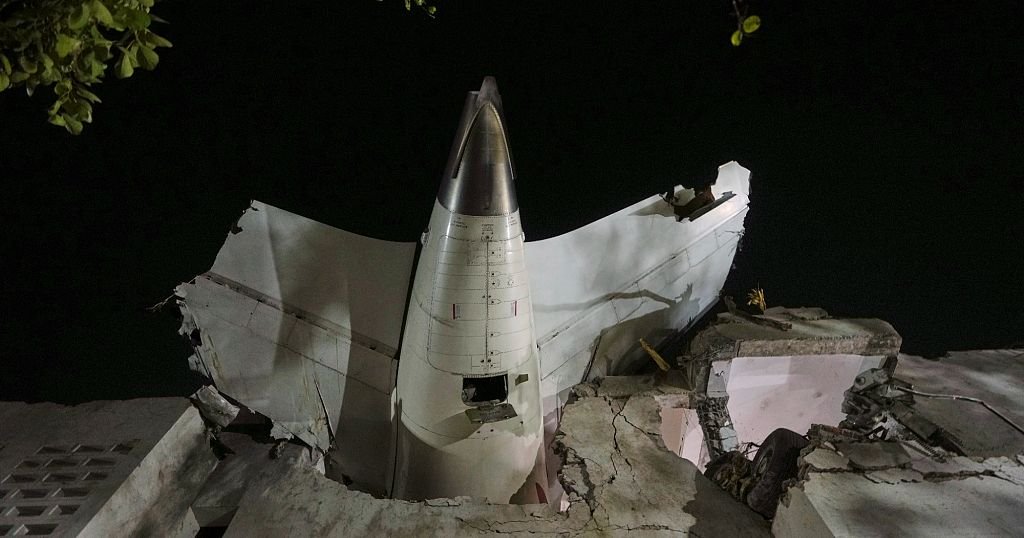
Fuel control switches for the engines of an Air India flight that crashed last month were moved from the “run” to the “cutoff” position moments before impact, starving both engines of fuel, a preliminary investigation report said early Saturday.
The report, issued by India’s Aircraft Accident Investigation Bureau, also indicated that both pilots were confused over the change to the switch setting, which caused a loss of engine thrust shortly after takeoff.
The Air India flight, a Boeing 787-8 Dreamliner, crashed on June 12 and killed at least 260 people, including 19 on the ground, in the northwestern city of Ahmedabad. Only one passenger survived the crash, which is one of India’s worst aviation disasters.
The plane was carrying 230 passengers: 169 Indians, 53 British, seven Portuguese and a Canadian along with 12 crew members.
According to the report, the flight lasted around 30 seconds between takeoff and crash. It said that once the aircraft achieved its top recorded speed, “the Engine 1 and Engine 2 fuel cutoff switches transitioned from RUN to CUTOFF position one after another” within a second.
The report did not say how the switches could have flipped to the cutoff position during the flight. The movement of the fuel control switches allow and cut fuel flow to the plane’s engines.
The switches were flipped back into the run position, the report said, but the plane could not gain power quickly enough to stop its descent after the aircraft had begun to lose altitude.
“One of the pilots transmitted “‘MAYDAY MAYDAY MAYDAY’,” the report said. It also indicated confusion in the cockpit moments before the crash. In the flight’s final moment, one pilot was heard on the cockpit voice recorder asking the other why he cut off the fuel.
“The other pilot responded that he did not do so,” the report said. The preliminary report did not recommend any actions to the Boeing.
Air India in a statement said it is fully cooperating with authorities investigating the crash. “Air India is working closely with stakeholders, including regulators.
We continue to fully cooperate with the AAIB and other authorities as their investigation progresses,” it said.
The plane’s black boxes, combined cockpit voice recorders and flight data recorders, were recovered in the days following the crash and later downloaded in India.
Indian authorities had also ordered deeper checks of Air India’s entire fleet of Boeing 787 Dreamliner to prevent future incidents. Air India has 33 Dreamliners in its fleet.
-
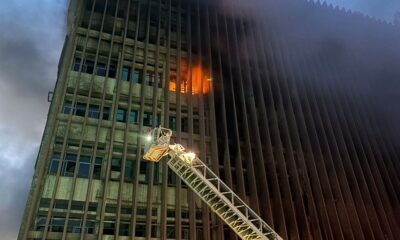
 Africa5 days ago
Africa5 days agoCairo telecom fire injures 14, disrupts internet nationwide
-

 Sports5 days ago
Sports5 days agoThe behind-the-scenes story of a WNBA controversy: Caitlin Clark, DiJonai Carrington and a journalist’s questions
-

 Asia4 days ago
Asia4 days agoA torpedoed US Navy ship escaped the Pacific in reverse, using coconut logs. Its sunken bow has just been found
-
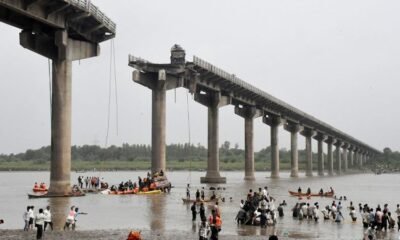
 Asia4 days ago
Asia4 days agoGujarat state: Bridge collapse kills 9 in India
-
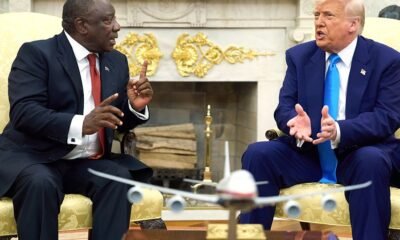
 Africa4 days ago
Africa4 days ago30% on South African imports: Ramaphosa hits back at new Trump tariffs
-

 Europe4 days ago
Europe4 days agoExtreme heat is a killer. A recent heat wave shows how much more deadly its becoming as humans warm the world
-

 Europe4 days ago
Europe4 days agoTrump promised 200 deals by now. He’s gotten 3, and 1 more is getting very close
-

 Sports5 days ago
Sports5 days ago‘Keep pumping’: The new dance inspiring Novak Djokovic’s quest for a record-equaling Wimbledon title




